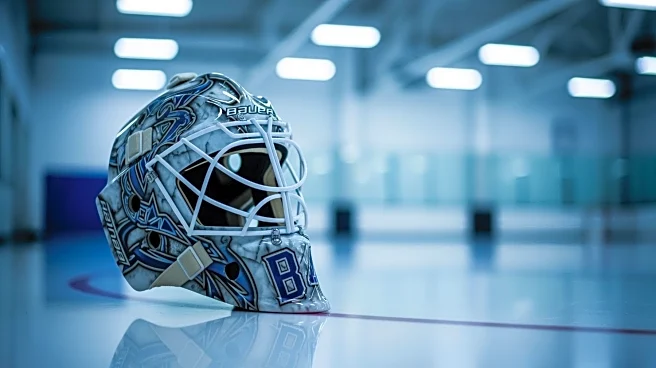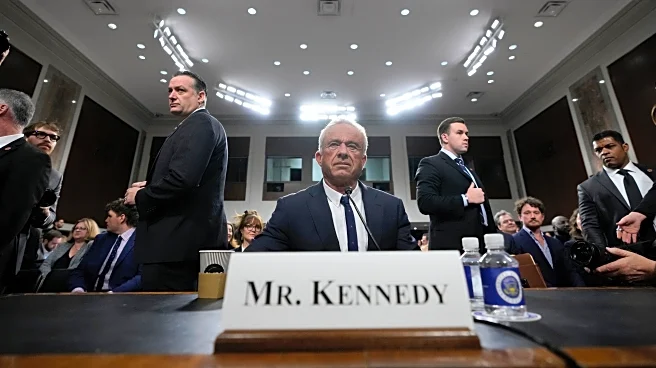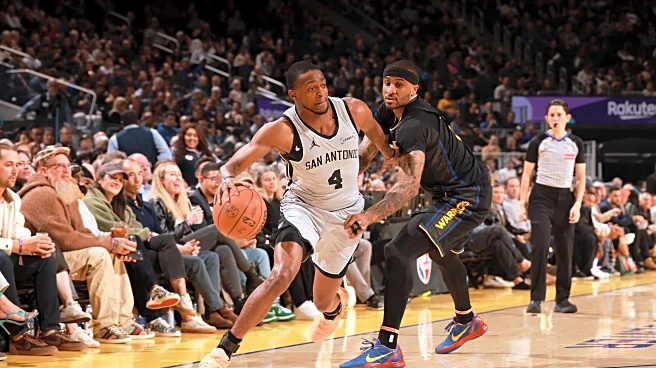What's Happening?
Goaltender Andrei Vasilevskiy has rejoined the Tampa Bay Lightning during practice, marking his return to the ice after being sidelined since the second day of training camp. Head coach Jon Cooper has indicated that Vasilevskiy's absence is not expected
to extend into the regular season. Vasilevskiy participated in Day 2 of training camp on September 19 but did not engage in the subsequent scrimmage, remaining inactive until now. With three preseason games against the Florida Panthers scheduled this week, Cooper confirmed that Vasilevskiy will not play in Tuesday's game, leaving only two opportunities before the team's home opener against the Ottawa Senators on October 9. Cooper emphasized the importance of Vasilevskiy feeling comfortable and noted that the goaltender has previously gone through training camps playing just two games.
Why It's Important?
Vasilevskiy's return is significant for the Tampa Bay Lightning as they prepare for the upcoming NHL season. As a key player, his presence on the ice is crucial for the team's defensive strategy and overall performance. The timing of his return allows him to potentially participate in the remaining preseason games, which are vital for assessing his readiness and ensuring he is in optimal condition for the regular season. The Lightning's ability to integrate Vasilevskiy back into the lineup smoothly could impact their early season success and set the tone for their performance in the league.
What's Next?
The Lightning will continue to monitor Vasilevskiy's progress during practice sessions this week. Depending on his comfort and readiness, he may participate in the remaining preseason games. The coaching staff will make decisions based on his feedback and performance, aiming to have him fully prepared for the regular season opener. The team's management and fans will be keenly observing his recovery and readiness, as his role is pivotal in the team's defensive lineup.
Beyond the Headlines
Vasilevskiy's return also highlights the importance of player health and readiness in professional sports. The decision to hold him out of games until he feels comfortable underscores the team's commitment to player welfare and long-term performance over immediate gains. This approach may influence how other teams manage player injuries and readiness, potentially leading to broader discussions on athlete health management in the NHL.
















